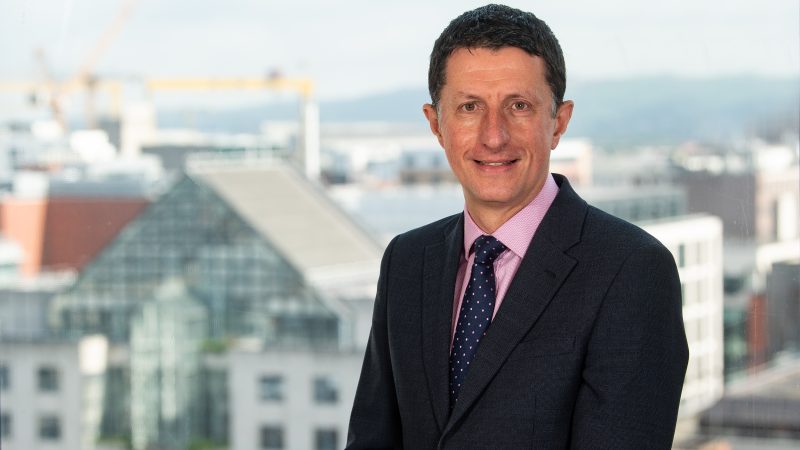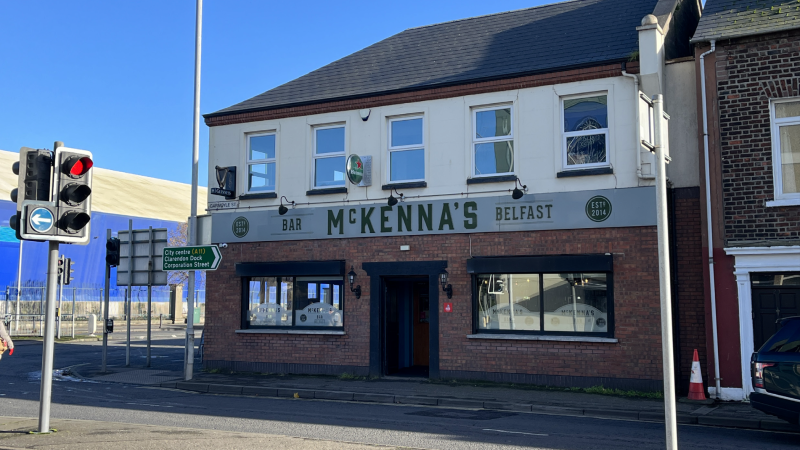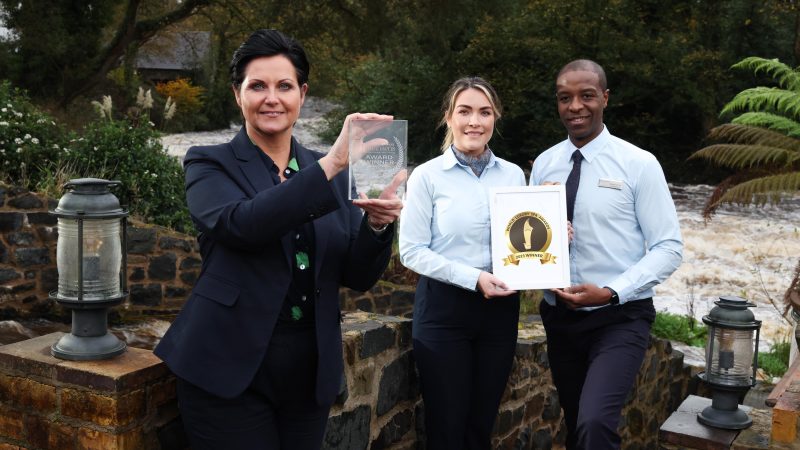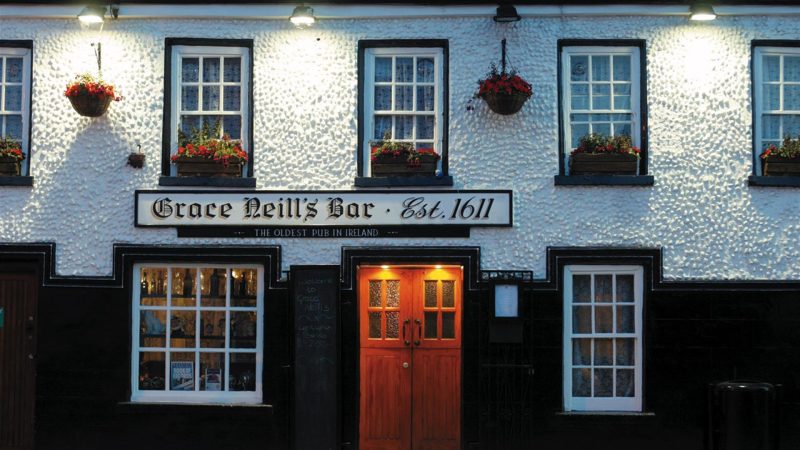Future focus for new tourism chief
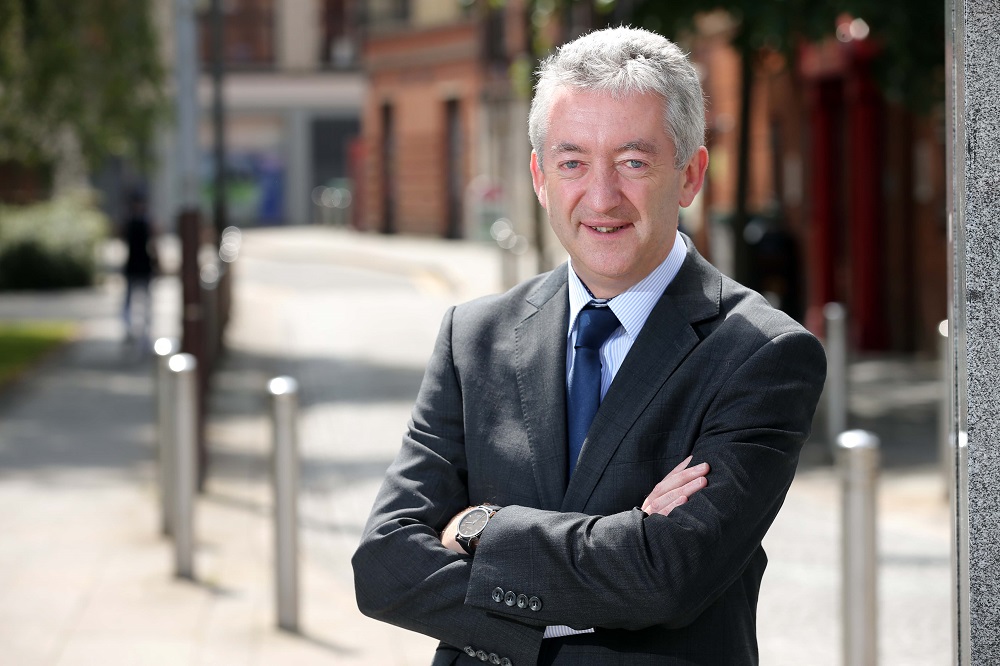
As the new chief executive of Tourism NI, John McGrillen is determined to create a modern agency with a strong digital presence that knows how to capitalise fully on the human resource within its own ranks. He’s been talking to LCN…
John McGrillen, the new chief executive at Tourism NI, regards as one of his biggest challenges the task of ensuring that the wider hospitality industry in Northern Ireland benefits more directly from a high level of knowledge and expertise among the agency’s staff.
Speaking to this magazine early in August, 53-year-old Mr. McGrillen said that he believed that much of the potential within Tourism NI (formerly the Northern Ireland Tourism Board) lay in the experience and ability of its rank and file employees:
“If there is one thing that people have been critical of us for, it’s that we haven’t engaged directly with the industry to the extent that we could have done in the past,” he added. “My priority now is to turn this into a business which is much more externally focused than perhaps it has been.
“That means looking at things such as a regional or sub-regional presence for Tourism NI, perhaps via the local councils or through Invest NI’s regional network. This is something that has already been recommended by the Hunter Report.”
That aspiration is only one of a clear set of objectives that Mr. McGrillen has already established for the agency, although he does admit that he is still learning about his new role.
He comes to the post from his job as director of development with Belfast City Council and replaces Alan Clarke, who retired from the agency last autumn after 14 years.
Born in Ballynahinch, Mr. McGrillen has impressive career credentials in both the public and private sectors. An engineering graduate, he began his working life with Shorts in Belfast and after participating in an international MBA programme with the University of Ulster, he was offered the job of supervising the former Industrial Development Board’s offices in Dusseldorf, which he did for five years.
Back home and a stint as an IDB client executive followed before he became chief executive of NI-CO, a non-profit organisation based in Belfast which offers public sector expertise to developing economies abroad.
After three years in that post, he applied for the chief executive’s post in Down District Council:
“I had no real expectation of getting it, but I was fed up with the travelling that the job with NI-CO necessitated,” recalls Mr. McGrillen. “I think I was just preparing myself for the idea of a change, but to my great surprise, I got the job. Down was where I’d grown up, I lived there and went to school there so I was very happy to have the opportunity to do something in my own area.”
He stayed in that post for the next 11 years before shifting to Belfast for a new role as director of development at city hall in 1999.
“I suppose I’ve always had an interest in the tourism sector,” he remarks “At Belfast City Council, I had responsibility for a number of tourism assets and for the conference centre re-development taking place at the Waterfront Hall. I was also responsible for St. George’s Market, the Ulster Hall and all the large events that the council put on. And we provided finance for Visit Belfast and all the tourism agencies in the city.”

Mr. McGrillen says he sees three clear roles which he believes Tourism NI needs to fill – it has a marketing function within the island of Ireland promotional model; it has responsibility for the development of the industry and the product itself and it looks after itself and its own systems from IT to human resources and finance.
And as with every department within government at present, the uncertainty over the availability of funding makes it difficult to know exactly what the future holds:
“We’re just like the health service, the police and everyone else, we have hard choices to make about how we spend our money”, admits Mr. McGrillen, “and how we balance what we spend on each area. The budget for this year is in place, but nobody knows what the budget will be like for next year.
“The Department and the Minister will be taking the lead on delivery of our tourism strategy and one of the fundamental questions that will be asked in terms of how that is developed is how can public sector money be best used? What sort of interventions should be developed in order to maximise the development of the industry?”
For its part, Mr. McGrillen believes that the tourism industry needs to become less dependent on public sector funding and more proactive on its own behalf in terms of sales and marketing and development activities.
He points to the loss this year of European funding for the agency’s marketing budget and agrees that in the immediate future at least, promotion will involve less television and radio advertising and more below-the-line publicity and PR activity.
That said, there continues to be capital investment in key tourism projects, including £18.5m for the ongoing Waterfront Hall development and further sums for two new museums in Londonderry and the restoration of the WW1 cruiser, HMS Caroline, which is now moored in Belfast.
“It’s fair to say that when you look back at all our Signature Projects and to the development of attractions such as the MAC and The Lyric Theatre, I think we have a pretty strong product offering, and we have new attractions as well such as The Gobbins cliff path. What we need to be asking ourselves now is, how can we maximise the investment that has already been made?”
Skills
Clearly, there is a raft of well-publicised issues with which Mr. McGrillen is already grappling. Among them is air connectivity. He knows that greater access will make it easier for tourists and investors to get to Northern Ireland, yet Dublin Airport – just one-and-a-half hours from Belfast – now has 168 direct flights into the city.
Mr. McGrillen says that the agency is working with the Department of Enterprise, Trade and Investment (DETI) and Invest NI to secure more direct routes into the province and to best exploit the Dublin situation for the benefit of the industry north of the border.
One area where he also wants to see urgent progress is skills development within the tourism sector:
“We are now working with the Department of Employment and Learning to get our skills strategy for tourism finished,” he adds. “You can have a fantastic four-star tourist facility but without the right skill sets in your workforce, you won’t succeed People are becoming more and more discerning as they travel to other places and their expectations in terms of service provision are ever-increasing, so we need to be able to compete in those areas.”
And he adds:
“This also provides us with a significant opportunity. Thirty per cent of the population of Belfast is economically inactive and many of those people are like that because they don’t have the qualifications they need to get some of the FDI jobs that Invest NI is bringing in. The tourism sector can create employment that is accessible to people that might find themselves without work, so by delivering our skills strategy, there’s an opportunity to bring people into the sector.”
North-South
Before his departure, Alan Clarke had voiced some concern over Northern Ireland’s position within the all-Ireland overseas marketing model, which is co-ordinated by Tourism Ireland. It was his belief that the province “struggled to have a voice” within that all-island arrangement.
Addressing the same question today, John McGrillen is keen to highlight those things which he believes Tourism NI might be able to learn from the approach taken in the south.
When the Republic sells itself abroad, it focuses on three distinct elements of its offering – the Wild Atlantic Way; Ireland’s Ancient East and city breaks in Dublin.
“One thing that we need to do is to look at our own proposition and establish that the way that we present ourselves to the market is as compelling as these other propositions are,” says Mr. McGrillen. “Unless we do that, people will naturally go with the proposition which is strongest.”
Addressing the relationship with Tourism Ireland, he points to increases in the number of visitors to Northern Ireland, which he says are “positive” and “encouraging”:
“We need as many visitors as we can possibly get,” he adds. “I think our job is to work with Tourism Ireland to maximise the potential for visitors to come here. But it’s a two-way street. It’s important that we develop the product so that Tourism Ireland feels that they can sell it. If we do that, there’s an expectation that they will do their jobs as effectively as they would for any other part of the island.”
Priorities
Moving forward, Mr. McGrillen includes within his priorities finalising a new strategy for developing business tourism here. That document should be ready within the next two or three months.
The agency is also working with the DETI to develop a new tourism strategy for Northern Ireland.
“It’s absolutely essential that we do that in an open, transparent and engaging way and that we involve the industry itself,” says Mr. McGrillen. “That will be critical for industry buy-in. Without that, it won’t be delivered.”
He will also be looking to make Tourism NI a much more digitally-enabled organisation, which he says is crucial to give it the reach that it needs. But he admits that one of his greatest concern for the future is still funding:
“We are all in a boat where there is great uncertainty over budgets for the next four years and without resources, it’s very difficult to deliver on objectives,” he adds.
Two or three years from now, he says he would like Tourism NI to be regarded as the partner of choice for those working in the visitor industry:
“I would like them to feel that we support them and work with them,” he adds “And I would like us to be in a position by that time that our marketing platforms allow us to achieve the user numbers that we want in a way that is most cost-effective for everyone.”




